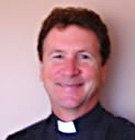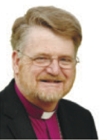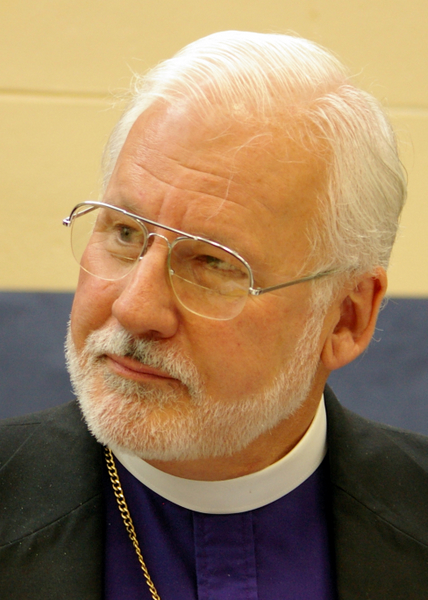SINGAPORE: Global South Observers Reflect on Worldwide Anglicanism
Western Anglicanism declines even as Global South rises
Do not copy Anglicanism from England, said Sydney Archbishop
By David W. Virtue in Singapore
www.virtueonline.org
April 25, 2010
Anglican Observers from New Zealand, Australia and the US to the Fourth Global South Encounter castigated Western liberal Anglicanism and urged Global South Anglican leaders to uphold the faith and maintain relationships, even as the Anglican Communion goes through its present upheavals.
 The Rev. Dr. Timothy Harris a theologian from New Zealand said that at the time of the New Testament, the "independent churches had a particular phrase to uphold themselves against the culture. Hominoya: to be of the same mind and that mind is the mind of Christ. This is premised on the renewal of the transformation of the mind into the mind of Christ. We have a choice before us in the Anglican Communion, those who pledge loyalty to the institution vs. those who cry out to go deeper: to be of the mind of Christ."
The Rev. Dr. Timothy Harris a theologian from New Zealand said that at the time of the New Testament, the "independent churches had a particular phrase to uphold themselves against the culture. Hominoya: to be of the same mind and that mind is the mind of Christ. This is premised on the renewal of the transformation of the mind into the mind of Christ. We have a choice before us in the Anglican Communion, those who pledge loyalty to the institution vs. those who cry out to go deeper: to be of the mind of Christ."
Harris said the crisis in the Anglican Communion is partly the theological mess we find ourselves in. "It is not just what is preached from pulpit, but clergy, when ask what do you believe, their answers run the gamut.
"I hope the Global South will be a people who have the love and courage to preach the fullness of the mind of Christ, who know God's word, not guessing what people of God might be doing, but people who know. They have a clarity about God's purposes and meaning."
Harris stated that this painful lesson is being learned in New Zealand. "How damaging it is when the theological education of men and women in ministry brings doubt and confusion especially when the word of Scripture is clear. I read the House of Bishops from TEC statements re scriptures that mention homosexuality in the Bible. Passages that are clear came out twisted, until they say the opposite of how they are written.
"The heritage of the future belongs to those who will be a light to the nations, a covenant grounded in God's word and witness. We stand confident in what God has taught us by his grace, not councils and decisions which are grounded in loyalty to the city, culture and the institution, but the Word of God written."
 Bishop Richard Ellena from the Diocese of Nelson, (NZ) said the Aotearoa Province is at a crossroads. "The Polynesian Islands are electing a new Archbishop this Sunday. Some of their bishops have already taken the slide to oblivion that haunts the West. We are at a crossroads and it seems we may join the downward slide of The Episcopal Church (TEC). We're the southernmost part of the world, except the very most southern part of South America. Some of our bishops have already moved in line with TEC. The Diocese of Nelson is the only one with an evangelical bishop in New Zealand.
Bishop Richard Ellena from the Diocese of Nelson, (NZ) said the Aotearoa Province is at a crossroads. "The Polynesian Islands are electing a new Archbishop this Sunday. Some of their bishops have already taken the slide to oblivion that haunts the West. We are at a crossroads and it seems we may join the downward slide of The Episcopal Church (TEC). We're the southernmost part of the world, except the very most southern part of South America. Some of our bishops have already moved in line with TEC. The Diocese of Nelson is the only one with an evangelical bishop in New Zealand.
"New Zealand is embracing rugged individualism and rampant consumerism. [It is all about] my needs, what I can get out of church, that's what people are interested in today." They say, "I want a sermon that doesn't challenge me too much and music that is entertainment. They want a first class children's program that doesn't make them religious OR Christian. It's all about my needs; no heart, no sacrificial need. That's what we struggle with.
"This is the result of 40 years of rubbish taught at our one theological college in New Zealand. Pray for us. One phrase sticks with me and it is a judgment, 'He saw, he wanted and he went down.' Please pray for us."
 Bishop Jeffrey Driver of the Diocese of Adelaide said Australia is really two countries. It has contact with the ancient North which is England, but it is also conscious now that they are part of the Asian region. "We have a need to be sensitive to the countries around us and we share their future and destiny. Both north and south feel this way. There is a sense of our relationship with countries here that have also been peopled by immigration and refugees like we are. We have peoples of many colors and many languages, many aspirations, needs and dreams. We have that deep link, in the north and of the south as well.
Bishop Jeffrey Driver of the Diocese of Adelaide said Australia is really two countries. It has contact with the ancient North which is England, but it is also conscious now that they are part of the Asian region. "We have a need to be sensitive to the countries around us and we share their future and destiny. Both north and south feel this way. There is a sense of our relationship with countries here that have also been peopled by immigration and refugees like we are. We have peoples of many colors and many languages, many aspirations, needs and dreams. We have that deep link, in the north and of the south as well.
"One suggestion I would make to you, the people of the Global South. However we think of the structures, the first instrument of Communion is not the Archbishop of Canterbury or the Primates meetings or the Anglican Consultative Council. It is relationship. I encourage each to treasure, nurture and grow the informal links between our provinces. That is where the cohesion of the Anglican Communion will grow. The Church in Australia has most of the tensions in it that the Communion has."
 Sydney Archbishop Peter Jensen of Sydney commented that the Trumpet Sounds of the Global South have been one of the most significant elements in the Communion in the last 20 years.
Sydney Archbishop Peter Jensen of Sydney commented that the Trumpet Sounds of the Global South have been one of the most significant elements in the Communion in the last 20 years.
The evangelical archbishop said he was in a group talking about Covenant (a significant and sacred thing), when a bishop rose up and said, that when dealing with people of the West, we are not sure that they mean what they say. "We are so infected by post-modernism that our word cannot be trusted. It is true and it creates a tension that lies between us that is usually unspoken. We who have been infected by this and we need to repent. The beating heart of the Global South is that you say exactly what you mean."
Jensen was gratified that this conference was "unremorsefully Scriptural."
"Every talk, every presentation, came straight out of scripture and we had the Scriptures expounded for us. The commitment of the Global South to Scripture is no platitude. That is a striking thing. You take it for granted. You keep saying to the West, 'You have to live under the Scriptures.' I'm not sure they even know what that means."
Jensen blasted the secularism of the West, which he said is coming to you. "It has made mission in Australia very difficult. Why? At the heart of secularism is censorship. They do not want us to talk about Jesus. That is not true of you. When secularism comes your way, do not submit to censorship. We have to find out what Anglicanism is where we are. Copying Anglicanism from England is no longer an option."
The challenges require us to dig deeper and higher and broader, said Archbishop John Chew by way of response.
Archbishop Bob Duncan of the Anglican Church in North America (ACNA) rose to say he also represented Canada. "We come to you as two groups in two structures (ACNA and Communion Partners). We are not two; we are one. We are in the same mind of Christ. We're trying to reach out to our continent with the transforming mind of Christ. Our prayer for you is that grace and peace will be multiplied upon all of you in the Global South. I have four words to describe our reflection on this conference -Gratitude, Privilege, Renewing and Pain."
Addressing the issue of pain, Duncan said, "We were reminded of the terrible division that is in the Communion. "There is a terrible tension and crisis. We are aware of that. The destructive work of some in our communion continues to challenge the structures and the order. The danger to the Global South is simply to build an association that is based only on geography or history. No one must build an association on anything less than the shared Gospel of Jesus Christ. Sound the Trumpet. It will be heard all over the world."
 The Rt. Rev. John Howe of the Diocese of Central Florida, speaking on behalf of the Communion Partner bishops stated, "The witness and ministry in the Global South and your sense of calling to be the faithful suffering servant in the Anglican Communion is remarkable. Communion Partners bishops are remaining faithful and orthodox in TEC. The majority of Provinces has declared themselves to be in broken or impaired communion by the decisions of TEC's General Convention. The last time I met with him, I said to the Archbishop of Canterbury, that if he would say to us as a part of TEC that we are not in full communion with Canterbury, we can accept that. We too repudiate their actions.
The Rt. Rev. John Howe of the Diocese of Central Florida, speaking on behalf of the Communion Partner bishops stated, "The witness and ministry in the Global South and your sense of calling to be the faithful suffering servant in the Anglican Communion is remarkable. Communion Partners bishops are remaining faithful and orthodox in TEC. The majority of Provinces has declared themselves to be in broken or impaired communion by the decisions of TEC's General Convention. The last time I met with him, I said to the Archbishop of Canterbury, that if he would say to us as a part of TEC that we are not in full communion with Canterbury, we can accept that. We too repudiate their actions.
"Archbishop Chew met with us and asked Bishop Mark Lawrence and I that if the Global South recognizes ACNA, would that harm Communion Partners? We said No. Archbishop Ian Earnest said two weeks ago that the Province of the Indian Ocean would cease communication with TEC, except those bishops who have remained faithful. The Communion Partners have a sincere desire to remain your partners in ministry for Jesus' sake."
END













